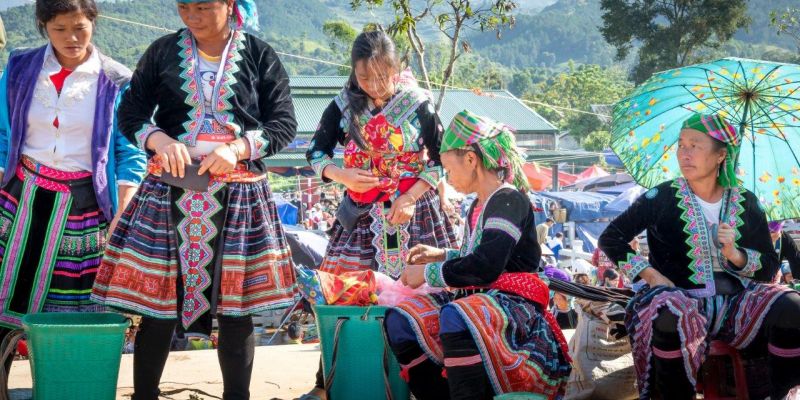Regional Consultation in Asia for the Preparation of the International Decade of Indigenous Languages (IDIL) 2022 – 2032
The United Nations General Assembly proclaimed the period 2022-2032 as the International Decade of the Indigenous Languages (IDIL) and invited UNESCO to serve as the lead UN Agency for its organization, in cooperation with the United Nations Department of Economic and Social Affairs (UNDESA) and other relevant agencies including the Office of High Commissioner for Human Rights (OHCHR). A Global Task Force was set-up to provide an international framework for inclusion, openness, participation and multistakeholder engagement in the International Decade.
In this context, UNESCO in cooperation with various stakeholders representing governments, indigenous people’s organizations, native speakers of endangered, minority and indigenous languages, experts, academia and the Global Task Force, is organizing a regional consultation in Asia on 10 and 11 May 2021.
The main objective of the regional consultation is to contribute to the development of the Global Action Plan for the International Decade. This will include:
- Identify regional priorities including strategic objectives, outcomes, outputs, domains of change (thematic considerations) as well as regional flagship and pilot projects for the International Decade in Asia,
- Raise awareness on the importance of indigenous languages, linguistic diversity and multilingualism for sustainable development,
- Forge partnerships among various stakeholders for the establishment of a regional network of partners, national committees and focal points for the Decade in Asia.
Final report: available here.
Programme
| 10 May 2021, 13:00 – 16:00 (Bangkok time) | ||
|
Time |
Items |
Speakers/Participants |
|
13:00-13:10 |
Video of UNESCO-AIPP indigenous youth projects on COVID-19 response |
|
|
13:10-13:30 |
Opening remarks |
|
| 13:30-13:40 | Keynote speech | Victoria Tauli-Corpuz, former UN Special Rapporteur on the rights of indigenous peoples, The Philippines |
|
13:40-13:50 |
Keynote video message on the Los Pinos Declaration in indigenous Mazateca* language (Contribution from the Embassy of Mexico in Thailand) |
Juan Gregorio Regino, Director General, National Institute of Indigenous Languages, Mexico |
|
13:50-14:00 |
Introduction to the IDIL and the Global Action Plan – Preliminary results of the global survey |
Irmgarda Kasinskaite-Buddeberg, Advisor, Communication and Information, UNESCO Paris |
|
14:00-15:00 |
Panel discussion: Safeguarding and revitalizing indigenous languages in Asia for sustainable development |
Moderator: Beatrice Kaldun, Head of Office and UNESCO Representative to Bangladesh, UNESCO Dhaka |
|
15:00-15:50 |
Defining the regional priorities: vision, outcomes, targets, key principles, stakeholders, thematic considerations and regional priorities |
Ming Kuok Lim, Advisor for Communication and Information, UNESCO Jakarta Notetaker: Cresti Fitriana |
|
15:50-16:00 |
Summary and closing of the day |
Misako Ito, Advisor for Communication and Information, UNESCO Bangkok |
| 11 May 2021, 13:00 – 16:00 (Bangkok time) | ||
|
Time |
Items |
Speakers/Participants |
|
13:00-13:10 |
Presentation of the key outcomes and instructions for the breakout sessions |
Misako Ito, Advisor for Communication and Information, UNESCO Bangkok |
|
13:10-14:10 |
Breakout sessions to further elaborate the details of the regional priorities. Each group will cover one priority (thematic consideration) and work on:
|
Moderator #1: Hanh Duong Bich, Chief and Programme Specialist, Culture, UNESCO Bangkok Notetaker #1: Hangying Li
Moderator #2: Qingyi Zeng, National Professional Officer, Communication and Information, UNESCO Beijing Notetaker #2: Jingxiao Wang
Moderator #3: Kristy Bang, Programme Officer, Inclusive and Quality Education, UNESCO Bangkok Notetaker #3: Ruohan Zhang |
|
14:10-15:00 |
Outcomes of the breakout sessions:
|
Moderator: Ramesh Gaur, Dean of Indira Gandhi National Centre for the Arts, and Member State Representative of the Global Task Force, India
Rapporteurs from each group |
|
15:00-15:30 |
Stakeholder roundtable for the way forward |
Moderator: Sue Vize, Regional Advisor for Social and Human Sciences, UNESCO Bangkok
Representatives of indigenous peoples, Member states and the UN |
|
15:30-15:40 |
Closing remarks |
Shahbaz Khan, Director, UNESCO Cluster Office in Beijing |
|
15:40-16:00 |
Video of UNESCO-AIPP indigenous youth projects on COVID-19 response |
|
* Mazateca language belongs to the Oto-mangue language family, currently spoken by the Mazateco people, located in the Mexican States of Oaxaca (33 municipalities), Veracruz (3 municipalities), and Puebla (1 municipality)
Key documents
- The UN Declaration on the Rights of Indigenous Peoples (September 2007)
https://www.un.org/development/desa/indigenouspeoples/wp-content/uploads/sites/19/2018/11/UNDRIP_E_web.pdf - The Yuelu Proclamation on the Protection and Promotion of Linguistic Diversity of the World (September 2018) https://unesdoc.unesco.org/ark:/48223/pf0000368264?posInSet=1&queryId=7c8bc670-b43b-4cd0-a0c5-4077cb738fef
- UNESCO policy on engaging with indigenous peoples (2018) https://unesdoc.unesco.org/ark:/48223/pf0000262748_eng
- The Bangkok Statement on Language and Inclusion (September 20219) https://bangkok.unesco.org/content/bangkok-statement-language-and-inclusion
- Summary report on the International Year of Indigenous Languages 2019 (February 2020) https://undocs.org/E/C.19/2020/9
- The Los Pinos Declaration [Chapoltepek] – Making a Decade of Action for Indigenous Languages (February 2020) https://en.unesco.org/sites/default/files/los_pinos_declaration_170720_en.pdf
- Evaluation of UNESCO’s action to revitalize and promote indigenous languages within the framework of the International Year of Indigenous Languages 2019 (March 2021) https://unesdoc.unesco.org/ark:/48223/pf0000376719/PDF/376719eng.pdf.multi
- Evaluation brief: Focus on Indigenous Peoples on the (April 2021) https://unesdoc.unesco.org/ark:/48223/pf0000376830
- The global survey on IDIL 2022-2032 (March-May 2021) http://bit.ly/IDILGlobalSurvey
Contacts
Should you have any question, please contact Ms Misako Ito (m.ito@unesco.org) or Ms Yufan Hu (yu.hu@unesco.org).







